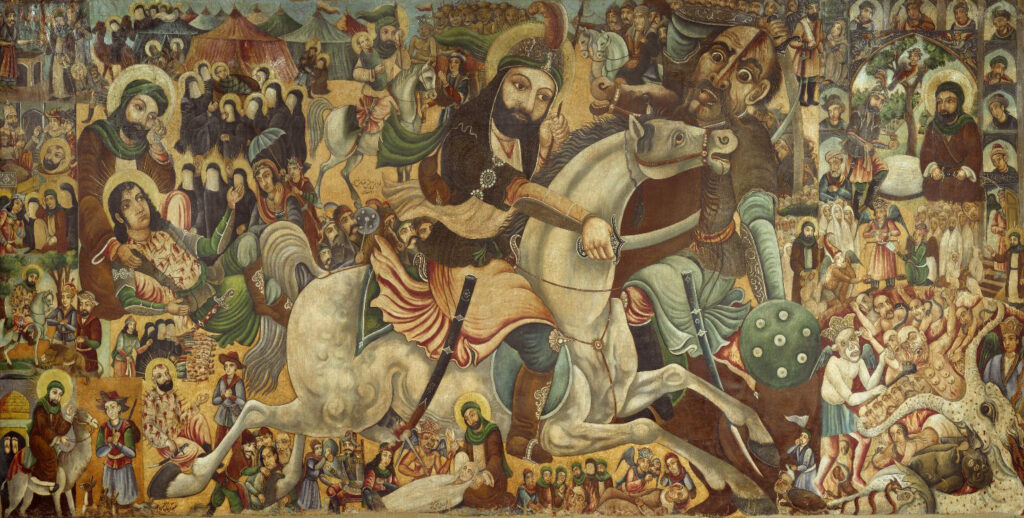680 The Battle of Karbala

Though relatively bloodless, few combats in Islamic history have been as consequential as the Battle of Karbala.
When Mohammed died in 632, rulership of the Muslim world fell to a series of four caliphs or “successors”: Abu-Bakr, Mohammed’s father-in-law; Umar; Uthman; and Ali, Mohammed’s cousin and son-in-law. The turbulence of the time may be seen in the fact that the last three were all assassinated. At the death of Ali in 661, the succession was disputed with a regional governor named Muawiyah winning more support than Ali’s oldest son Hasan. Muawiyah would establish a new dynasty, the Umayyads, and move the capital of the Islamic world from Mecca to Damascus.
Resistance to this new caliphate was led by Husayn, Ali’s second son, whose followers came to be known as Shi’ites. Husayn claimed that in establishing a dynasty the Umayyads had forfeited their right to rule. On October 10, 680 Husayn’s caravan was attacked by Umayyad forces and everyone in it killed or taken prisoner. This Battle of Karbala became part of Shi’ite sacred history, inspiring further resistance and engendering the annual Ashura period of mourning. The split in the Islamic world between the majority Sunni and minority Shia branches remains unhealed to this day.